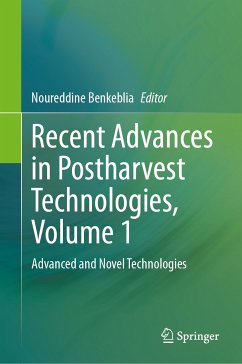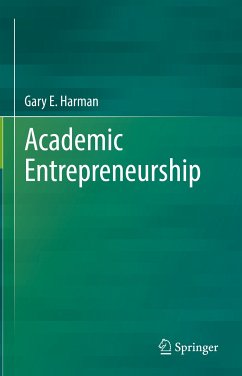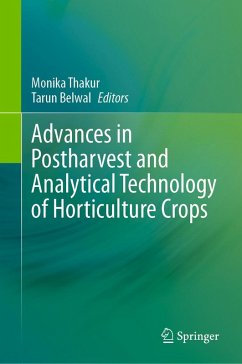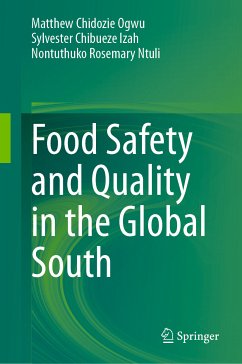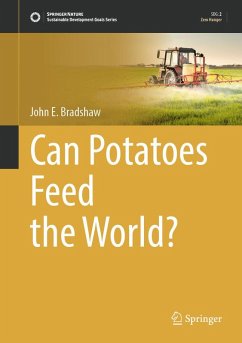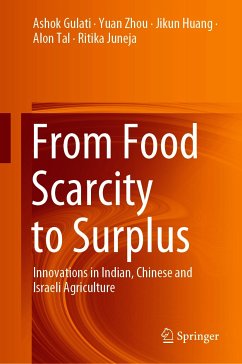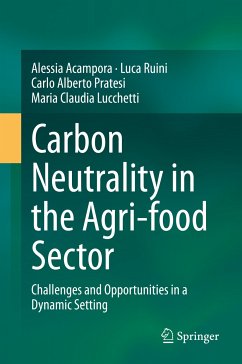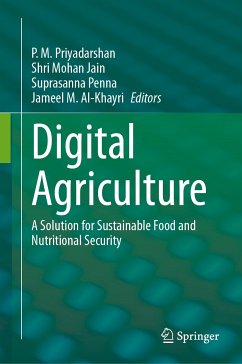
Recent Advances in Postharvest Technologies, Volume 2 (eBook, PDF)
Postharvest Applications
Redaktion: Benkeblia, Noureddine
Versandkostenfrei!
Sofort per Download lieferbar
184,95 €
inkl. MwSt.
Weitere Ausgaben:

PAYBACK Punkte
92 °P sammeln!
The elapsing time from producer to consumer has significantly increased as a result of food marketing and trade globalization. Consequently, maintaining quality along the food value chain is becoming a significant challenge. Postharvest losses are considered a major component of food loss and waste in the supply chain from farmers to consumers, due to improper handling, storage, transport, preservation techniques and spoilage. Postharvest science aims to extend the shelf life of fresh and perishable commodities, and to reduce heavy losses, thereby contributing to food security. While significa...
The elapsing time from producer to consumer has significantly increased as a result of food marketing and trade globalization. Consequently, maintaining quality along the food value chain is becoming a significant challenge. Postharvest losses are considered a major component of food loss and waste in the supply chain from farmers to consumers, due to improper handling, storage, transport, preservation techniques and spoilage. Postharvest science aims to extend the shelf life of fresh and perishable commodities, and to reduce heavy losses, thereby contributing to food security. While significant progresses have been made in postharvest preservation and shelf-life extension, the continuous development of emerging technologies have changed our vision on postharvest science. Furthermore, recent advancements in molecular engineering of horticultural crops for quality improvement; the development of genomics, transcriptomics, proteomics, and metabolomics have led to a better understanding of the physiology and the biochemistry of the senescence processes, resulting in better preservation and improved production of fresh crops.
This two-volume work focuses on innovative technologies that extend and preserve shelf life of fruits and vegetables. Volume 1 offers a review on the state of the art modern technologies in the postharvest filed. The accompanying Volume 2 explores advanced and novel technologies after harvest, particularly the application of nanotechnologies to packaging materials.
This two-volume work focuses on innovative technologies that extend and preserve shelf life of fruits and vegetables. Volume 1 offers a review on the state of the art modern technologies in the postharvest filed. The accompanying Volume 2 explores advanced and novel technologies after harvest, particularly the application of nanotechnologies to packaging materials.
Dieser Download kann aus rechtlichen Gründen nur mit Rechnungsadresse in A, B, BG, CY, CZ, D, DK, EW, E, FIN, F, GR, HR, H, IRL, I, LT, L, LR, M, NL, PL, P, R, S, SLO, SK ausgeliefert werden.



